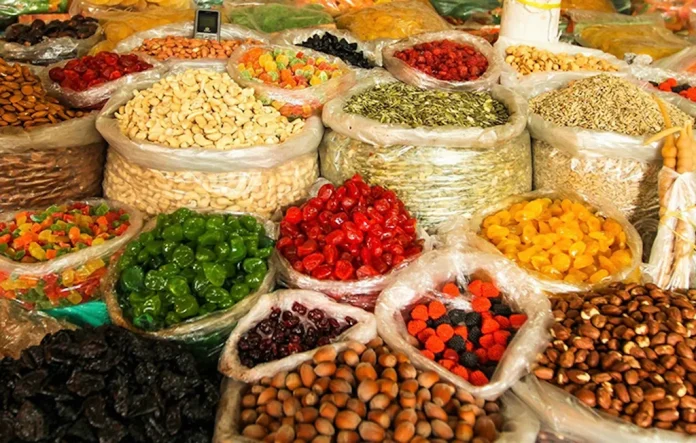BY VINCENT CHIDINDU ASOGWA
THE Federal Government of Nigeria is grappling with a pressing challenge: food security. Millions of Nigerians are facing hunger and malnutrition, which necessitates immediate and effective governmental action. In light of the current crisis, the argument for approving a zero-duty tax on imported foods becomes increasingly compelling. With local food production levels insufficient to meet the needs of the population, implementing a zero-duty tax policy on imported foods is crucial for providing immediate relief to those suffering from food scarcity.
According to the World Food Programme (WFP), approximately 18 million Nigerians are currently facing acute food insecurity. This statistic underscores the urgent need for decisive government action. The inability of local agriculture to sustain the population is exacerbated by climate change, poor infrastructure, and insecurity in farming regions.
Despite the federal government’s efforts to boost local agricultural production, the reality remains that the amount of food produced locally cannot meet the ever-increasing demand. The Food and Agriculture Organisation (FAO) reports that over 13 million Nigerians face severe food insecurity, with 7.1 million in crisis or emergency phases.
Delaying the approval of a zero-duty tax on imported foods prolongs the suffering of millions and has broader economic implications. High food prices lead to increased inflation, as food constitutes a significant portion of household expenses. The National Bureau of Statistics (NBS) indicates that food inflation in Nigeria reached 22.95 per cent in recent months, significantly impacting the purchasing power of the average Nigerian. By allowing the importation of food at zero duty, the government can help stabilise prices, making food more accessible to those in need.
From a consequentialist viewpoint, which emphasises the outcomes of actions, the decision to impose a zero-duty tax on imported foods is ethically justified. The immediate benefit would be the alleviation of hunger and malnutrition among vulnerable populations. By prioritising the welfare of citizens, the government can fulfil its ethical obligation to protect and promote the well-being of its people. Furthermore, a zero-duty tax would incentivise food imports, thereby increasing market competition. This could lead to lower prices and improved food quality, benefiting consumers and local businesses alike.
As utilitarian thinkers have articulated, “The greatest good for the greatest number” should be the guiding principle in policymaking. Allowing imported foods to be duty-free aligns with this principle by addressing the urgent need for food security in Nigeria.
Critics may argue that a zero-duty tax could undermine local farmers. However, it is essential to consider the current limitations of local food production. Despite efforts to boost agricultural output, Nigeria’s agricultural sector grew by only 2.2 per cent in 2020—well below the 5.4 per cent population growth rate.
The Nigerian Agricultural Council estimates that local food production covers merely 60 per cent of national demand. In this context, the government should focus on simultaneously supporting local farmers through subsidies and infrastructure improvements while allowing for the importation of food to fill the gap. A balanced approach would ensure that short-term hunger relief does not come at the expense of long-term agricultural development.
Food importation is crucial to bridging the supply-demand gap. The Nigerian Customs Service reports that food imports accounted for 14.3 per cent of total imports in 2020, valued at N1.3 trillion. Implementing a zero-duty tax on imported foods will increase availability, reduce prices, and alleviate hunger.
The benefits of such a tax are manifold: increased food availability will augment local production, ensuring a stable food supply; reduced food prices will make food more affordable for low-income households; the economic stimulus from lower food prices will increase disposable income; and improved nutrition from access to diverse imported foods will enhance the diet of vulnerable populations.
Other countries facing food security challenges have implemented similar measures. For instance, Egypt imposed zero tariffs on wheat imports to stabilise bread prices, while Kenya waived duties on maize imports to address food shortages. These examples illustrate that timely interventions can effectively combat food insecurity.
While some fear that increased importation may undermine local agriculture, several measures can mitigate these concerns. The government can implement targeted tariffs to protect local farmers, ensuring that they remain competitive. Investing in agricultural research, extension services and infrastructure will enhance local production and empower farmers. Moreover, a gradual phase-out of the zero-duty tax can be implemented as local agricultural capacity increases.
Public sentiment largely favours immediate action to address food insecurity. Surveys indicate that a significant majority of Nigerians support measures to lower food prices, including the importation of food at zero duty. The government should heed these sentiments and act accordingly. By prioritising the welfare of its citizens and addressing the hunger crisis, the government can enhance its credibility and trust among the populace.
The Federal Government of Nigeria ought not delay in approving the importation of foods at zero duty tax.


